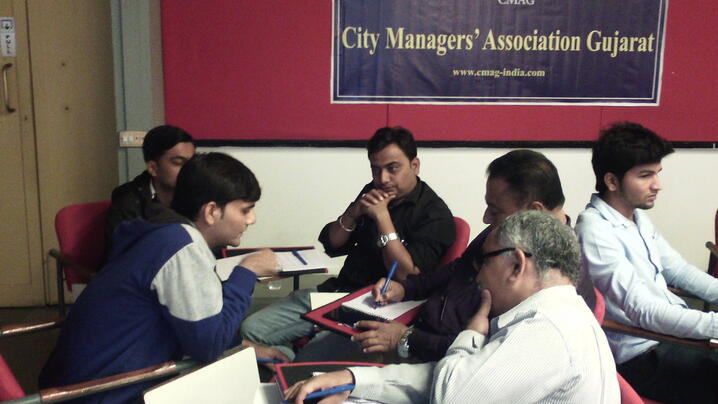
Under an agreement with the CEPT Research & Development Foundation (CRDF), ICMA worked to enhance the capacity of local government managers, supervisors, and administrators, as well as students, to better manage cities in India. The foundation takes its name from CEPT University, based in Ahmedabad, in Gujarat state. Led by a resident technical advisor, ICMA conducted a stakeholder analysis and an assessment of training needs, developed a 12-module training curriculum and delivered trainings to students and current practitioners working in Indian local governments. Modules focused on:
- Change Management
- Citizen Engagement
- Complaint Management
- Conflict Management.
- Priority Setting
- Empowering and motivating employees
- Leadership
- Networking
- Performance Management
- Project Management
- Use of Social Media
- Supervision
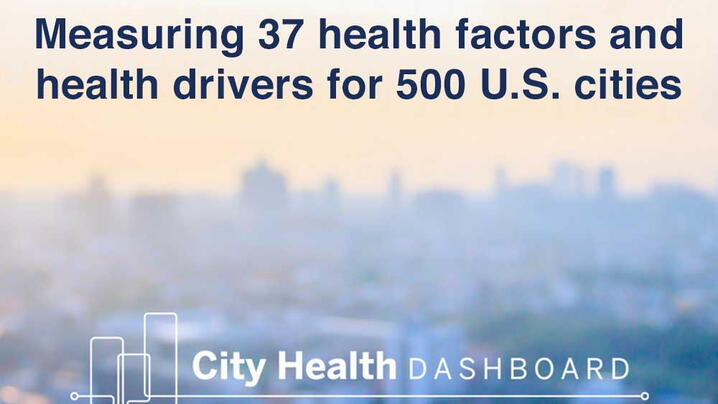
The City Health Dashboard provides communities and city leaders with an array of regularly updated data specific to neighborhood and/or city boundaries – such as life expectancy, obesity, and children in poverty – to improve the health and well-being of everyone in the community.
Thanks to a grant provided by the Robert Woods Johnson Foundation (RWJF) in 2017, ICMA, as a subcontractor to New York University Grossman School of Medicine (NYUSOM), has helped connect local governments with the City Health Dashboard, a growing online database with over 40 measures of health and drivers of health in cities in the United States with 50,000 or more residents.
Designed to provide communities and their leaders with a clearer picture of the challenges they face, the City Health Dashboard helps local governments and community organizations target public health investments in high-need neighborhoods and expand support for budget allocations and evidence-based community health improvement efforts. Recently, City Health Dashboard has developed an index to help communities identify and address COVID-19 risk factors, such as mapped census tracks indicating a 1-10 risk level for the spread of the virus, and prioritizing testing for specific neighborhoods.
ICMA’s role is to provide the connection between local government and public health with subject matter expertise as well as promotion of the Dashboard to local government professionals and scholars through the facilitation of webinars and promotion at the ICMA Annual Conference.
By presenting data needed to understand population health status and its actionable determinants at the city level and allowing for ready cross-city comparisons, the project aims to support city leaders and community stakeholders in driving improvements in urban health and well-being.
ICMA, as a subcontractor to The Palladium Group, provided technical assistance to municipalities in El Salvador as part of a five-year project with the primary objective of increasing the competitiveness of key economic sectors. Funded by the U.S. Agency for International Development (USAID), the project built on lessons learned from earlier development initiatives. It complemented other USAID/El Salvador activities to enable Salvadoran businesses to become more competitive in global markets while ensuring participation of men and women, including those with disabilities and those from the LGBTI community.
The project supported efforts to strengthen the capacity of micro, small, and medium enterprises (MSMEs) to compete in domestic and export markets, and improve the national and subnational business environment to encourage private-sector investment, innovation, and business expansion to foster economic growth and job creation. Specific ICMA interventions included:
- Provided technical assistance to improve the business enabling environment at the subnational level, helping municipal competitive committees and other relevant municipal-level entities implement and/or update their plans. One factor affecting economic opportunities, employment, and growth is a secure and safe municipal environment. For that reason, ICMA worked with municipalities on violence prevention and other public safety initiatives that were linked to new investment or enable businesses to operate and grow more efficiently.
- Provided training and technical assistance on key topics such as attracting investment and creating public-private partnerships, business improvement districts, and regulations for economic development.
- Facilitated CityLinks™ exchange between U.S. and Salvadoran cities to support the creation of new one-stop-windows and simplified business procedures; strengthen or create municipal units for enterprise development (known as EMPREs) to link medium and small enterprises with business development service providers and establish business improvement districts (BIDs).
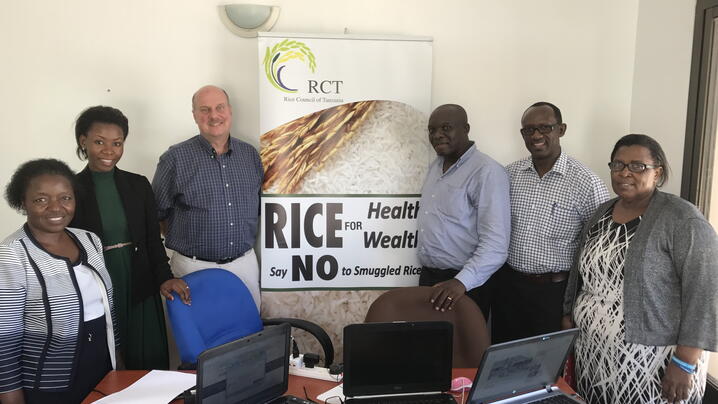
Key Project Information
Funder
Period of Performance
Location
TanzaniaICMA's Role
Project Details
ICMA is an implementing partner in the Enabling Growth Through Investment and Enterprise (ENGINE) Program in Tanzania, a project designed to increase private-sector investment leading to inclusive, broad-based economic growth in the agricultural regions of Mbeya, Morogoro, and Iringa, as well as in Zanzibar.
ENGINE is a four-year Feed the Future activity funded by the U.S. Agency for International Development (USAID) and awarded through the Volunteers for Economic Growth Alliance (VEGA), with the International Executive Service Corps (IESC) taking the lead.
Components of the Project
The project has three component objectives:
- Implementing Policies for Growth: Build the capacity of the private sector to work effectively with the government to set the policy agenda and improve the capacity of the public sector to implement policies that promote an environment that enables business. An indicator of success is a 20 percent increase in formally registered businesses in targeted local government authorities (LGAs).
- Equipping for Growth: Foster the growth and capacity of a sustainable market for business development services in Tanzania, with the result that at least 24 suppliers of these services are sustainable by the end of the project.
- Financing for Growth: Broaden access to financing for small and medium-sized enterprises, specifically for women and youth entrepreneurs, to facilitate increased investment and growth, with the result that more than $7 million of Development Credit Authority loans are extended to women- and youth-owned businesses.
ICMA’s Role
ICMA’s role is to advance the first objective, implementing policies for growth, by guiding and managing a local governance analyst and fielding local, regional, and international volunteers. ICMA’s specific tasks are to:
- Recruit and Manage Volunteers. ICMA’s approach is to motivate a cadre of executive-level volunteers with specific and relevant experience and skill sets in national and local policy development. The local government advisor and volunteers work with a local consulting firm to ensure sustainability of results.
- Employ Learning-by-Doing Capacity Strengthening. Volunteers in each of the regional capitals support local efforts with mentoring and coaching, training, and direct technical assistance to build local capacity. Some possible outcomes include streamlined business registration and licensing, improved “own-source” revenue from the LGAs, services on quality standards, market access and information, and other business support services.
- Improve Policy Analysis, Design, Advocacy, Adoption, and Monitoring. ICMA is deploying experts in economic governance and ICMA volunteers from the political and administrative leadership of U.S. cities for short- and medium-term assignments to work with the LGAs, the business council working group, and private-sector and civil society organizations to better articulate evidence-based messaging and adopt effective advocacy methods.
For more information, see About Global Programs on our website, or contact global@icma.org.
Throughout much of the U.S., the overall lack of affordable housing combined with ongoing problems in addressing older, obsolete, and rundown housing stock have created a housing crisis that is having an impact on the economic health of communities and on the quality of life for community residents and their families. As local governments struggle with how best to address these interlinked issues, it has become clear that traditional approaches to neighborhood and community planning are not producing the desired results for residents.
To address this, the U.S. Department of Housing and Urban Development (HUD) launched the Choice Neighborhoods Program. This comprehensive approach to neighborhood planning takes into account the economic and social needs of residents in public and assisted housing beyond those of their physical environment. With HUD funding, ICMA coordinated a study of three smaller cities (Salisbury, North Carolina; Suffolk, Virginia; and Norfolk, Virginia) that received funding from the Choice Neighborhoods Program.
Based on the study, ICMA prepared a report, Evaluating the Role of Local Government and Project Stakeholder Engagement in Choice Neighborhoods Transformation Planning and Implementation.
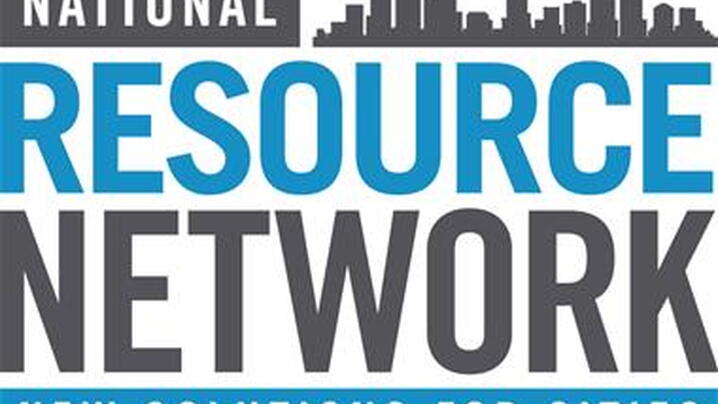
In May 2013, the U.S. Department of Housing and Urban Development (HUD) announced the selection of a consortium that includes ICMA, Enterprise Community Partners, Public Financial Management (PFM), HR&A Advisors, Inc., and NYU Wagner Graduate School of Public Service to run and operate the Strong Cities, Strong Communities National Resource Network (the Network).
The goal of the Network, which launched in May 2014, is to support cities across the U.S. that are challenged by a range of mounting issues such as growing poverty, high unemployment, poor performing schools, aging infrastructure, and vacant and blighted properties. The Network partners with cities that are rounding the corner from major economic challenges to help them identify and implement practical solutions to facilitate their paths to economic recovery and growth. The Network provides three core services:
- Support for Implementing Solutions: The Network deploys teams of private and public sector experts to work with cities to implement locally identified projects and initiatives to deliver economic benefits in the near term. Network teams also work to build local capacity and leadership for the future.
- Access to Peer Networks and New Ideas: The Network convenes and connects local leaders to their peers and other experts solving similar problems across the country. Through structured peer networks and innovative uses of technology, the Network empowers creative, collaborative problem solving targeting the toughest economic challenges facing America’s cities. The Network also generates real time analysis and policy recommendations that can inform local, state, and federal action.
- On-Line, On-Demand Access to Expertise: The Network’s website provides an unprecedented online library of tools and resources tailored for the leaders of these economically challenged communities, as well as the first-ever compilation of publicly and privately funded technical assistance opportunities. It also hosts the country’s first “311” resource for public agency staff working on fiscal, economic, and community development issues in cities across the country.
Learn more at www.nationalresourcenetwork.org; follow the project on Twitter at @NatlResourceNet.
Funder: U.S. Department of Housing and Urban Development
Contact: Jessica Johnston, jjohnston@icma.org
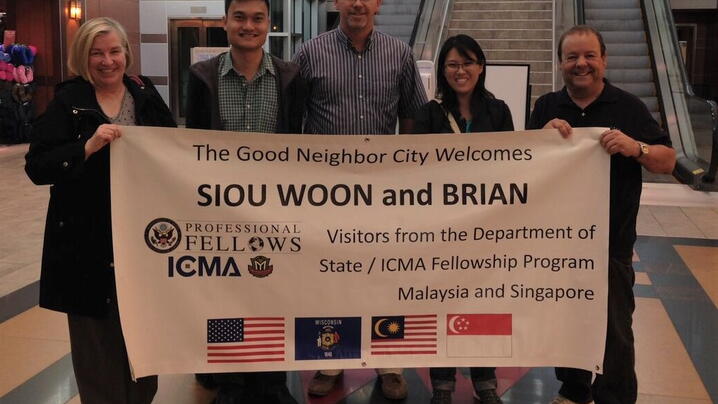
With funding from the U.S. Department of State's Bureau of Educational and Cultural Affairs (ECA), ICMA conducted a four-part, two-way reciprocal environmental and sustainability fellowship exchange that promoted learning and knowledge exchange among key local government practitioners from the U.S., Brunei, Myanmar (Burma), Cambodia, Indonesia, Laos, Malaysia, Philippines, Singapore, Thailand, and Vietnam. The exchange focused on the theme of accountable governance.
Fellows spent time in 23 different host communities and organizations across the United States: City of Ontario, OR; City of Austin, TX; City of Denver, CO; City of Goddard, KS; City of Tukwila, WA; Rare.org, DC; City of Kansas City, KS; Guilford County, NC; Harris County, TX; Office of Congresswoman Elizabeth Esty in New Britain, CT; Downtown DC Business Improvement District; City of Tallahassee, FL; City of Frankfort, KY; Coconino County, AZ; City of Northampton, MA; Jackson County, MI; City of Bozeman, MT; City of Salisbury, NC; CASA for Douglas County, NE; City of Hooksett, NH; City of Upper Arlington, OH; City of Tulsa, OK; City of Albany, OR
The exchange visits by the foreign participants occurred between April 2017 and November 2017, and included participation in short-term fellowships, job shadowing, meetings with government officials, and visits to nonprofits and community groups working to engage citizens. Participants captured their experiences and shared photos and videos on ICMA’s YSEALI Fellows WordPress blogsite.
In return, 12 participants from the United States participated in a reciprocal experience with their international participant counterparts The U.S. participants traveled from: Ontario, OR; Dubuque, IA; Denver, CO; Tukwila, WA; Coconino County, AZ; Goddard, KS; Upper Arlington, OH; Bozeman, MT; Albany, OR; Frankfort, KY; and Guilford County, NC.
Key Project Information
Funder
Period of Performance
Location
JordanICMA's Role
Project Details
More than 50 percent of the Jordanian workforce is employed by micro and small enterprises (MSEs). To create an enabling environment for MSE growth and innovation, the U.S. Agency for International Development (USAID) designed the Jordan Local Enterprise Support (USAID LENS) Project, which was implemented by FHI 360 and with ICMA as a subcontractor.
USAID LENS was designed to improve the economic resilience of vulnerable and underserved populations in Jordan, including women and youth, and facilitate their participation in economic growth. It had three primary objectives:
- To promote a policy environment that (1) enables micro and small firms to produce, transport, market, and sell efficiently and at competitive cost; (2) helps clarify the availability of resources for municipalities to undertake local economic development (LED) initiatives and support their capacity to access such resources; and (3) encourages investment at the local level.
- To create effective markets for business support services, particularly access to finance, for MSEs and vulnerable populations and increase the appreciation of firms for the value they provide.
- To improve the capacity of local government leaders to implement local economic development through streamlined communications with citizens, the private sector, and national government actors; clearer lines of authority; and improved ability to market the assets and investment opportunities in their municipalities.
ICMA’s activities focused on the third objective. ICMA supported changes in national policy and regulations to facilitate better local economic development (LED) by identifying political, economic, and social barriers; analyzing the system of revenue transfers from the national to the local level; and mobilizing LED resources to reduce the need for transfers. ICMA activities help to build local capacity to design and implement successful LED strategies with the involvement of government, private-sector, and other local stakeholders.
ICMA conducted capacity assessments of selected municipalities, provided LED training for mayors and staff at the local and governorate levels, and created CityLinks™ partnerships matching Jordanian cities with their counterparts in U.S. jurisdictions for information- and knowledge-sharing exchanges. The project focused on sectors with emerging or high growth potential, including tourism; food distribution; information, communications, and technology; and transportation/logistics.
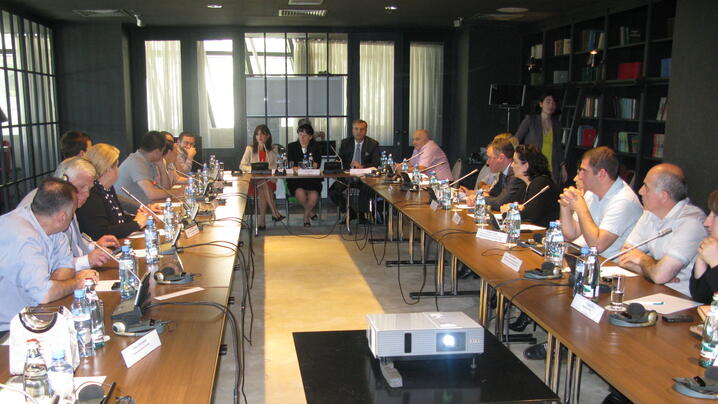
Key Project Information
Funder
Period of Performance
Location
GeorgiaICMA's Role
Project Details
In 2014, ICMA was awarded a four-year Georgia Waste Management Technologies in Regions Activity (WMTR) under the USAID-funded CityLinks™ program to assist the Government of Georgia in designing adequate waste management and recycling systems in the Kakheti and Adjara regions.
The focus of WMTR was to work with providers of waste collection and recycling and to increase public awareness of services offered and best practices for waste disposal. Through the project, ICMA worked with the Ministry of Regional Development and Infrastructure of Georgia (MRDI) and the Ministry of Environment and Natural Resources Protection of Georgia, as well as municipalities in the target regions to collaboratively analyze waste management assessments and best practices to prepare waste management strategies for Kakheti municipalities in line with the new requirements of the national laws. These strategies emphasized timeliness, affordability, sustainability, and environmental impact. WMTR engaged with local businesses in both regions to build their capacity to meet the needs of the local populations and to increase quality and perceived service quality by residents.
WMTR also worked with local, regional and national authorities to assist in the development of a proper waste collection tariff that supports the maintenance and operation of the waste management system. To further support and institutionalize these practices, WMTR provided extensive technical assistance, training, and national workshops and seminars to share experiences and best practices.
Beyond assisting with the development of municipal waste management plans for Kakheti and Adjara, WMTR supported the Georgian government with writing by-laws on the Construction, Operation, Closure and After-Care of Landfills, as well as Rules of Collection and Treatment of Municipal Waste
Also of note, the WMTR team launched a pilot project in five villages of Telavi municipality to demonstrate the benefits of integrated solid waste management (ISWM) practices via the provision of technical assistance, co-financing support, and the establishment of an ISWM system, as well as to raise the awareness of local governmental structures and the public at large. The WMTR program also introduced the country’s first public waste separation scheme in Goodwill Hypermarket and Tbilisi Marriott Hotel.
